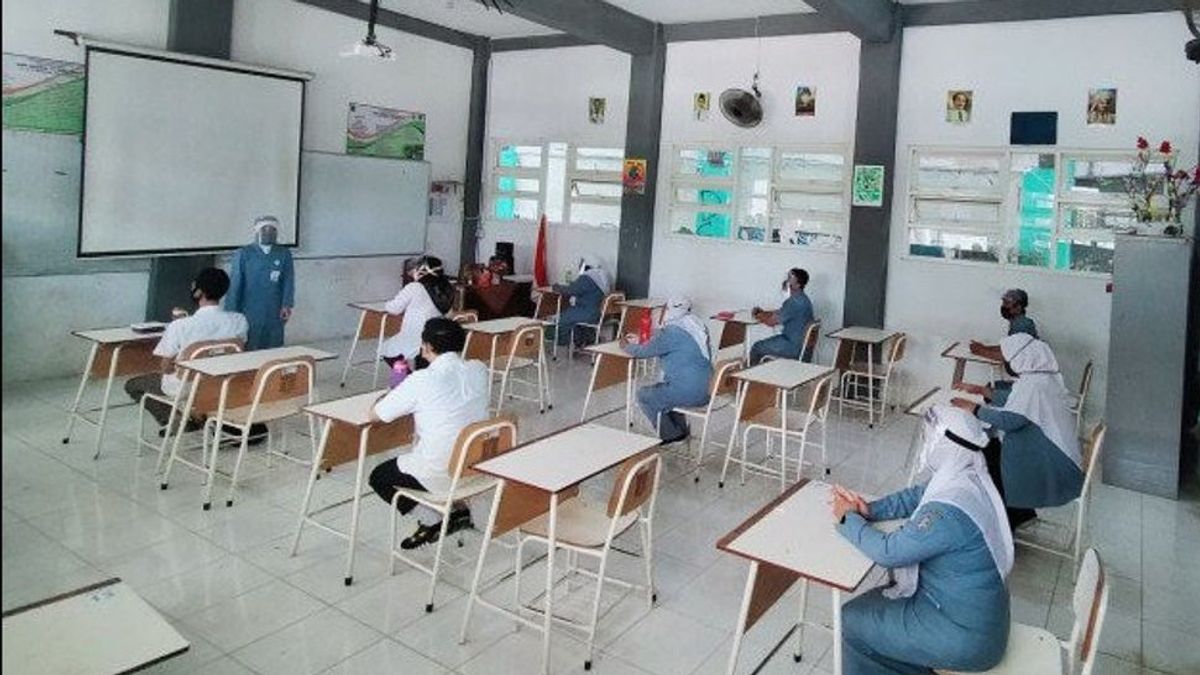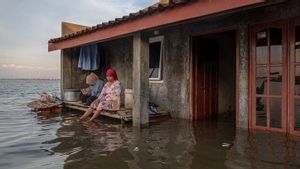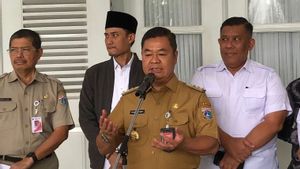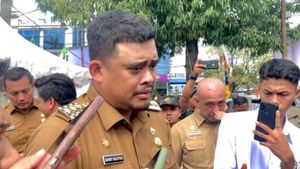JAKARTA - The teaching and learning process during the COVID-19 pandemic presents its own challenges, both for educators and for students. The pandemic eliminates face-to-face learning and replaces it with distance learning (online).
This new adaptation makes educators have to fight extra hard to be able to deliver learning materials, so that their students can absorb the learning material optimally. A tough challenge is faced by Deswita Supriyatni, a Lecturer in Physical Education for Recreational Health, STKIP Pasundan, Cimahi, West Java.
"During the pandemic, the learning process was not optimal in delivering learning materials, because usually the material I convey is identical to face-to-face and practice. Now, inevitably, we have to go through media technology or virtual face-to-face. The obstacle is when students are in the region. unable to listen optimally because there is an internet connection problem, "he said in a written statement received by VOI, Wednesday, November 25.
Deswita said that in the Productive Dialogue event welcoming National Teachers' Day with the theme "Supporting Educators to Keep Working" which was held by the Committee for Handling COVID-19 and National Economic Recovery (KPCPEN), today.
The same thing was conveyed by Arya Wiratman, SDS Islam teacher Ibnu Hajar Cipayung, East Jakarta. According to him, the current pandemic condition with virtual distance learning and video learning is very monotonous.
"Even so, we are still trying to package learning similar to that of face to face in class," he said.
Therefore, educators are required to make breakthroughs and be creative in carrying out this distance learning process. Then to support all of that, the government has tried to be present through several programs, namely, Internet Data Quota Assistance for educators and students.
The Ministry of Education and Culture has provided Internet Data Quota Assistance to 1.9 million teachers, 166 thousand lecturers, 3.8 million students, and 29.6 million school students, of which 100 GB is allocated 50 GB each month.
This internet quota can be used by every level of education, both public and private. As many as 35.5 million educators and students throughout Indonesia have received this benefit since last September 2020.
According to survey data from the Indonesian Survey Flow Institute (October 2020), 85.6 percent of respondents considered that the Internet Data Quota Assistance program eased the economic burden on parents of students in purchasing internet packages.
"Before internet quota assistance was provided, conditions were very difficult and limited. To meet the needs, we must be smart in managing family finances and set aside so that the internet quota needs are met. Having assistance greatly eases the burden of daily expenses," said Arya.
Likewise with Deswita, he admitted that he had to rearrange his family's financial planning during the COVID-19 pandemic, at which time primary needs and internet costs were his priority.
"Then with the help from the government it is very helpful so that family financial planning can return to normal," he said.
The same thing was also expressed by Sri Murni, Lecturer at STKIP PGRI Bandar Lampung. Before there is assistance, he must be smart in setting aside funds to meet learning needs.
"We are very grateful for the government assistance in the form of credit and Wage Subsidy Assistance (BSU). The money we initially set aside for quota can be used again to meet family needs," he explained.
In addition to Internet Data Quota Assistance, the government has also provided assistance through the launch of the BSU for Non-PNS Educators and Education Personnel under the guidance of the Ministry of Education and Culture and the Ministry of Religion. This assistance targets more than 2.74 million non-PNS educators and education personnel throughout Indonesia by allocating a total of IDR 4.7 trillion from the Ministry of Education and Culture and the Ministry of Religion.
This BSU is given an amount of Rp1.8 million for each educator and education staff with very easy disbursement requirements. So that these programs can help beneficiaries during the COVID-19 pandemic.
The English, Chinese, Japanese, Arabic, and French versions are automatically generated by the AI. So there may still be inaccuracies in translating, please always see Indonesian as our main language. (system supported by DigitalSiber.id)













